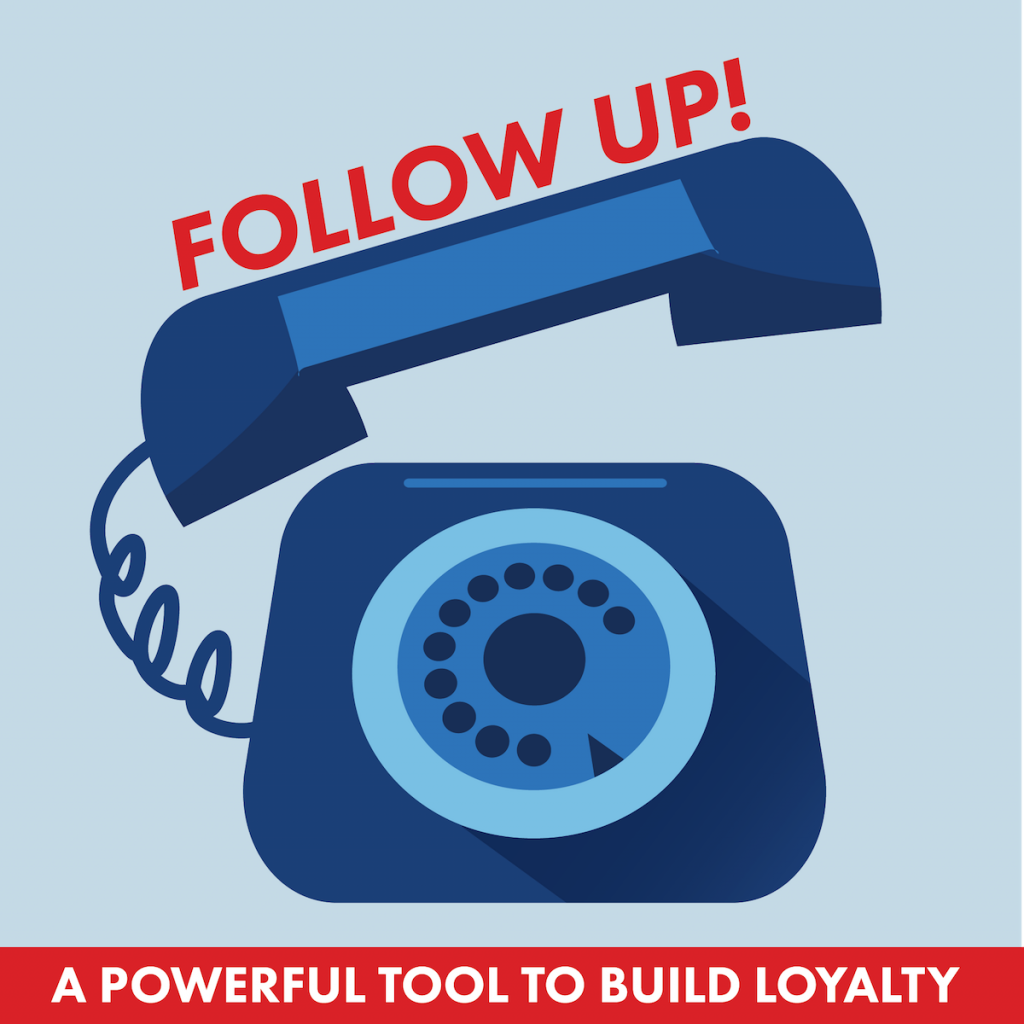If I were to compile a short list of tactics to help you create a positive customer relationship, follow-up phone calls would be at or near the top.
Communication is the glue that binds together every relationship. People need to know that you care about the experience they had. Follow-up calls after a service encounter do that. And if you’re tempted to administer a survey during the follow-up call, I recommend you don’t. Instead, keep the call friendly, simple and easy:
Keep it simple
“Hi, Mr. Randolph, this is Jane at Acme Hardware. I’m calling to see how we met your needs yesterday.” Or, even better, ask if the customer’s specific need was met. “Last week, I helped you purchase a new model drill to use in hanging some cabinets. I was wondering how that drill worked for your project.”
This will open a dialogue. You can then gently probe to uncover questions or issues to answer or address. This process will give you the opportunity to start a conversation, to learn, to connect. Conversations convey caring. Friends converse with each other. And friends deserve our loyalty.
Now, let’s say Mr. Randolph didn’t have questions. Or he might not have started the project yet. Or perhaps he didn’t even answer the phone. Even so, your call (or the message you leave) is still extremely valuable. Again, you’re letting the customer know you care. You’re telling the customer that you’re still there after the sale. You’re expressing that you think of him or her as a person, one you value now and in the future.
If your vet can do it …
Over the years, my most consistent follow-up caller has been our vet’s office. The person calling always identifies herself (Megan) and asks how our dog, Missie, is doing. Thankfully, Missie has never had any issues, but I still appreciate that Megan calls to ask how she’s doing and that she calls her by name. Names personalize conversations; using names is a subtle way our vet’s office conveys caring about Missie … and us.
So if a vet can do this meaningfully, why can’t a physicians’ office do so as well? Truthfully, many do, and I applaud them. Healthcare providers (the ones who treat humans) have additional concerns such as patient privacy.
By following these guidelines, making physician office follow-up calls is easily doable. Then why don’t more clinics do so?
Don’t make excuses
I’ll always remember an interaction I had years ago as a clinic marketer. A new physician was berating me because he wasn’t seeing enough patients. He wanted more advertising. I listened and took notes and then asked a question:
“Are you making follow-up calls to your new patients?” He looked puzzled so I continued: “Are you calling them the next day and asking if the medicine you prescribed is working or if they are feeling better or if they have any additional symptoms or questions?”
When I was done, the doctor shook his head, clearly annoyed at the suggestion. “I don’t have time for that,” he said.
Politely (which, honestly, took a little work), I tried again: “If you have time to see additional patients, don’t you think you have time to do follow-up calls on your most recent patients? Think of the word-of-mouth that will generate. You patients will tell their friends about their great new doctor, who took the time to personally check on them. That will create a buzz and generate more new patients, and soon you may be too busy to make those follow-up calls. What a great problem to have.”
… you can do it
Honestly, I’m not sure the doctor ever got what I was saying, but I hope you do. Follow-up calls for any organization are simple, easy ways to retain current business and create the kind of reputation that attracts new customers. So don’t be afraid. And don’t make it hard. Just pick up the phone and start a conversation.
